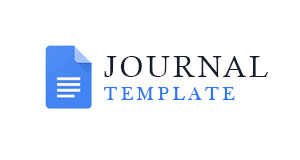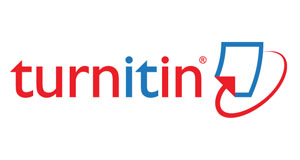PENINGKATAN KINERJA MELALUI STRATEGI BENCHMARKING
Abstract
Keywords
Full Text:
PDFReferences
Ali Muhammad Taufik, Praktik manajemen berbasis Al-Qur’an, Jakarta: Gema Insani, 2004
Camp.R. 1989. Benchmarking:The Search for Best Practise That Lead to Superior Performance, ASQC Quality Press. Milwaukee,WI
Departemen Pendidikan dan Kebudayaan, Kamus Besar Indonesia
Hornby, A.S., Oxford Advanced Learner’s Dictionary of Current English, Ed. 5
John A. Pearce II dan Richard B. Robinson Jr., Manajemen Strategis-Formulasi, Implementasi dan Pengendalian, Jakarta: Salemba Empat, 2008
Lebas, M , Performance measurement and performance management, International Journal of Production Economics, 1995
Muhammad, Etika Bisnis Islami,Yogyakarta: UPP AMP YKPN,2004
Masykuri Bakri, Pengembangan Sumber Daya Manusia dalam Paradigma Islam, Surabaya: Visipress Media, 2010
Marti, Jose Maria Viedma. 2004. Strategic Knowledge Benchmarking System:a knowledge-based strategic managemenr information system for firms. Jurnal Knowledge management, 2004
Marno dan Triyo Supriyatno, Manajemen dan Kepemimpinan Pendidikan Islam, Bandung: Refika Aditama, 2008
Prim Masrokan Mutohar, Manajemen Mutu Sekolah: Strategi Peningkatan Mutu dan Daya Saing Lembaga Pendidikan Islam, Jogjakarta: Ar-Ruzz Media, 2013
Rustam Effendy, Dasar-dasar Manajemen Modern, Malang: Jurusan Manajemen Fakultas Ekonomi UniversitasBrawijaya, tt
Tjutju Yuniarsih dan Suwanto, Manajemen Sumber Daya Manusia: Teori, Aplikasi dan Isu Penelitian, Bandung.: Alfabeta, 2011
Tiwana, Amrit. 2000. The Knowledge Magement Toolkit. One Lake Street:
Toto Tasmara, Membudayakan Etos Kerja, Jakarta : Gema Insani.
Veithzal Rivai dan Arviyan Arifin, Islamic Leadership (Membangun Super Leadership Melalui Kecerdasan Spiritual), Jakarta: Bumi Aksara, 2009
DOI: https://doi.org/10.24952/at-tijaroh.v2i1.785
Refbacks
- There are currently no refbacks.
Copyright (c) 2018 At-tijaroh

This work is licensed under a Creative Commons Attribution-ShareAlike 4.0 International License.








